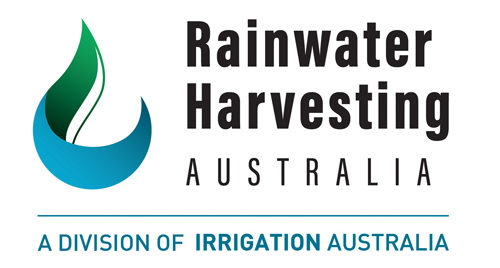Rainwater Harvesting is regulated through the plumbing sections of the National Construction Code administered by the Australian Building Code Board (ABCB). The Code is updated every three years and in early 2021 the ABCB released a draft 2022 Plumbing Code of Australia version and sent it to Rainwater Harvesting Australia (RHA).
RHA identified the draft 2022 Plumbing Code included a greatly expanded class of backflow prevention controls specifically impacting rainwater harvesting. Previously backflow prevention was largely restricted to preventing backflow from the property into the water utility network. The new ‘Cross Connection controls’ felt there was a risk of backflow occurring from potentially contaminated water sources and contaminating drinking water within the building. On this basis the draft Plumbing Controls proposed three main changes
- A Verification Method for determining a hazard rating for potential cross connection controls that set a high hazard rating for, and implied a higher level of controls for, rainwater harvesting
- A deemed to satisfy plumbing solution that rainwater tanks for commercial and industrial properties are a high hazard and could be required to have backflow prevention devices requiring annual testing at greatly increased expense
- A deemed to satisfy plumbing solution that rainwater tanks for domestic properties are a low hazard. It is recommended a low hazard should be addressed by a dual check valve with an atmospheric port.
The RHA met with the ABCB to discuss the proposal. The ABCB has formal guidelines for new regulatory proposals that require a rigorous rationale for the proposal, a cost benefit analysis and an assessment of any negative competitive impact of the proposal and how that is justified by a community benefit. Unfortunately, the ABCB was unable to provide that documentation. The ABCB did invite the RHA to make a further submission documenting concerns about the proposal.
A member of the RHA commissioned a report responding to the regulatory proposal. The independent report by Urban Water Cycle Solutions carried out possibly the most comprehensive review of the available data on this topic in the world. Findings from the report include the following.
- There is no evidence of cross connection and backflow from properties that include utility water supplies and rainwater harvesting and no known health impacts from these properties.
- The small number of reported backflow events that may have created harm are associated with water utility recycled water connections, industrial and agricultural properties.
- The evidence shows that health impacts from rainwater harvesting systems are rare.
- The annual probability of a health impact from rainwater supply is less than the risks imposed by utility water supplies. The result is consistent with peer reviewed epidemiological research that finds that the health risks of rainwater harvesting and utility drinking water supplies are similar.
- The increased hazard ratings and additional requirement for backflow prevention devices is estimated to create a wealth transfer of up to $3.4 billion (in real terms to 2050) from property owners and the rainwater harvesting industry to the plumbing and backflow industry.
- There does not seem to be evidence to support the changes proposed by the ABCB which impose high regulatory impacts and costs on property owners and the rainwater industry
- It would seem that the regulatory and policy effort would be better directed at improved education and knowledge sharing policies that would benefit the entire market equally.
There was an extended process of meeting with the staff of the ABCB, culminating in a meeting with the new CEO and Board Chairperson. The CEO actively investigated the issues presented by the RHA and in late April 2022 advised that he would be recommending to the Board that they revert to the 2019 Plumbing Code in order to have the time for the ABCB to discuss the matter with the RHA.
The RHA looks forward to working more positively with the ABCB in future and including the industry work done on the Residential Design Specification into the plumbing code as advisory content.
